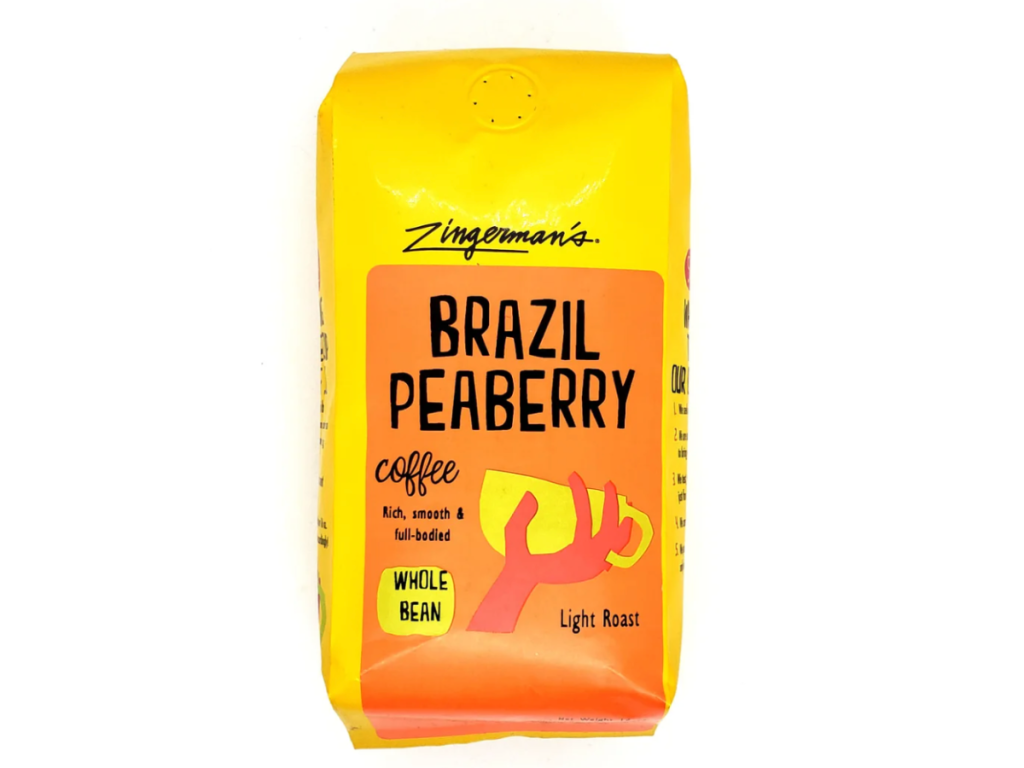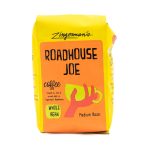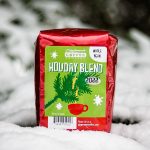Excerpt from Ari’s Top 5 enews
The smoothest cup of coffee in the ’CoB!
With all the great culinary options we have here at Zingerman’s every day, it’s easy to lose sight of a few of the truly wonderful ones. Which is exactly what happened with this coffee. We’ve been roasting and selling it regularly for nearly 20 years now, and it’s been uniformly excellent. But since it’s not on any of our businesses’ regular brew rotations, it tends to slip my mind. The other day for some reason, when I was at the Coffee Company I decided to order it up, brewed in a siphon pot and also as a Clever. Wow! Both were delicious. Super smooth, gentle, nutty, clean, with a very lightly sweet, finish. It’s the kind of coffee I could drink all day!
Coffee came to the then-Portuguese-colony of Brazil in the 18th century with French settlers/invaders. By the 1820s, it was the most significant single cash crop in the country, and by 1840, Brazil was the biggest coffee exporter in the world. Brazil, where politics of late have been eerily similar to that of the U.S., and which just held a big election a few months ago, became a Republic on the 15th of November 1889. Thirteen years later, in 1902 (the same year the Deli’s building was built by Rocco and Katherine Disderide), Luis Pascoal’s grandparents arrived in Brazil from Bari in the south of Italy. Soon after coming, they settled in the town of Campinas and started a coffee stand. The family has engaged in many businesses and industries in the years since, but in the early 80s, they came back to coffee in a beautiful way.
Located in the Minas Gerais region in the south-central part of Brazil, Daterra Farms provides profit sharing, transportation for staff, and health care for their workers and their families. They’re RainForest Alliance Certified and were the first farm in the world to receive “Level A” certification from the RFA. They’ve implemented very tight high-tech systems to maintain quality. They grow at over 3000 feet above sea level, adding to the complexity of the coffee. They are wonderful people doing very good work, and producing some of the best coffee in the world! Their values are, like so many of our long-time suppliers, very much aligned with ours here. The quality of their beans is consistently exceptional, and it shows through in the coffee. They share this about their work:
Our relationship with the soil, the water, workers, community, and everything that surrounds us, is just as important as our relationship with quality and with our clients around the world. The journey was not easy or fast, but strong enough to really sustain our dream. The Triple Bottom Line concept “People, Planet and Profit” required 20 years of investment and resilience to be completed!
The Brazilian Peaberry is a small, round coffee bean that can be used to brew some beautiful coffee. Matthew Bodary at Zingerman’s Coffee Company shares:
Peaberries are the single beans found inside the coffee cherry. Peaberry beans usually occur toward the end of a branch of the coffee tree and generally represent less than 5% of the tree’s production. When green coffee is sorted by size for milling, the smallest screen beans, including the peaberries, are the final separation.
Due to the diligence and care of the crew at Daterra, this one is turned into a marvelous cup. Daterra describes its flavors poetically as “black tea, brown sugar, and plum.” I’ll add gently nutty, a bit of almond, or maybe even toasted sesame and toffee. Swing by the Coffee Company and test it out for yourself in one of the seven brew methods we have on the Big Board. Or buy a bag of beans and brew it up at home. Either way, you’ll have a super tasty, exceptionally smooth, high-quality cup that represents the best of Brazilian coffee culture and history! Add an almond croissant and you’ll have yourself a world-class afternoon coffee break!



